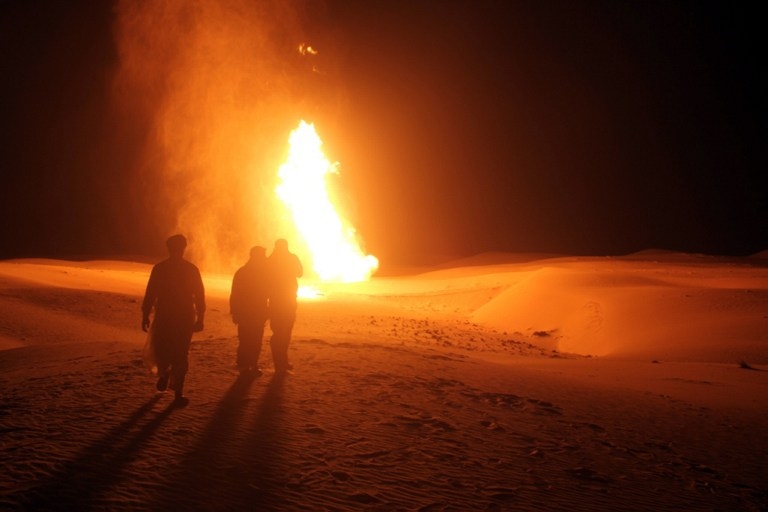Jordan to increase domestic energy production says minister

Jordanian Energy Minister Mohamed Hamed said Sunday that his country planned to reduce its energy imports over the coming few years.
Jordan currently imports 97 percent of its energy needs, including crude oil from Saudi Arabia and other petroleum derivatives, the minister told Anadolu Agency.
According to Hamed, Jordan plans to reduce its energy imports by 37 percent in coming years so that 40 percent would be produced locally while 60 percent would be imported.
The minister also noted that several new strategic energy projects were currently in the pipeline, especially in the field of wind energy and other natural resources, such as shale gas, which, he said, would contribute to the reduction of energy-related imports.
The minister, however, did not give a timeframe for the plan, but clarified that the new projects would go towards satisfying a large portion of Jordan's domestic energy demand.
In turn, he said, this would reduce dependence on imports and reduce the cost of generating electricity.
Jordan has been dependent on Egyptian gas imports for some 80 percent of its electricity supply before they were brought to a halt in July of last year due to repeated attacks on the pipeline linking the two countries.
The country’s large energy bill represents one of the main challenges to the government, which last year alone coughed up some $6.4 billion to cover energy costs.
The situation is expected to worsen due to a 10-percent increase in population brought about by a major influx of Syrian refugees estimated at some 1.4 million people.
Jordan has recently sought to establish alternative energy sources and diversify its imports. It is also building two liquefied natural gas terminals, to be finished by 2017, which will be used to import gas for electricity generation.
The Jordanian economy has been crippled by a high budget deficit – expected to reach some $1.5 billion this year – as well as an increase in the national debt to more than $28.3 billion.
While it aims to reduce its energy imports, Jordan signed a $15-billion deal with Israel last week that foresees the supply of 45 billion cubic meters of gas to Jordan over 15 years, making Israel Jordan's main supplier of natural gas.
The recently discovered Leviathan gas field off the coast of Israel is a major gas hub in the region, and holds nearly 600 billion cubic meters of gas.
“The Israeli government is trying to diversify its gas-exporting routes by making agreements with its neighbouring countries,” Sohbet Karbuz, director of hydrocarbons at the Paris-based Mediterranean Observatory for Energy, told The Anadolu Agency by email.
Karbuz said the deal with Jordan will require a minimum amount of investment, as Israel will only need to make small additions to its current pipeline system to make the gas flow to Jordan.
Karen Ayat, an energy analyst and associate partner at Natural Gas Europe said Israel may start by exporting to immediate neighbours, such as Jordan.
“In fact, Israel has expressed its intention to export to Egypt and use its unused export terminals to reach export markets,” Ayat said, referring to a deal reached in August by Noble and Delek, the two energy companies with operating rights in Leviathan. The two companies signed a preliminary agreement with British oil and gas company BG to export 7 billion cubic meters of gas to BG’s gas facility in Egypt for 15 years.
“But Israel is likely to opt for the diversification of its export routes, and such a strategy may include Turkey in the future,” Ayat added.
“This agreement has been fully supported from left to right in Israel”
Amit Mor, chief executive of Eco Energy, a Tel Aviv-based financial and strategic consulting firm specializing in Middle East energy, said negotiations for the agreement has been going on for three years, with Noble and partners and Jordan.
“This agreement has been fully supported from left to right in Israel,” Mor said.
Mor said the dynamics of the Middle East are changing quickly and Israel is aligning itself with moderate parties in the region - primarily Egypt, Jordan, Saudi Arabia and smaller countries in the Persian Gulf.
Middle East Eye propose une couverture et une analyse indépendantes et incomparables du Moyen-Orient, de l’Afrique du Nord et d’autres régions du monde. Pour en savoir plus sur la reprise de ce contenu et les frais qui s’appliquent, veuillez remplir ce formulaire [en anglais]. Pour en savoir plus sur MEE, cliquez ici [en anglais].

